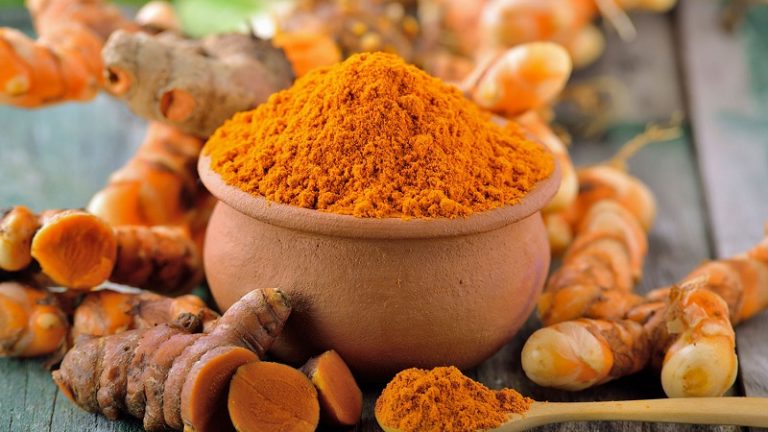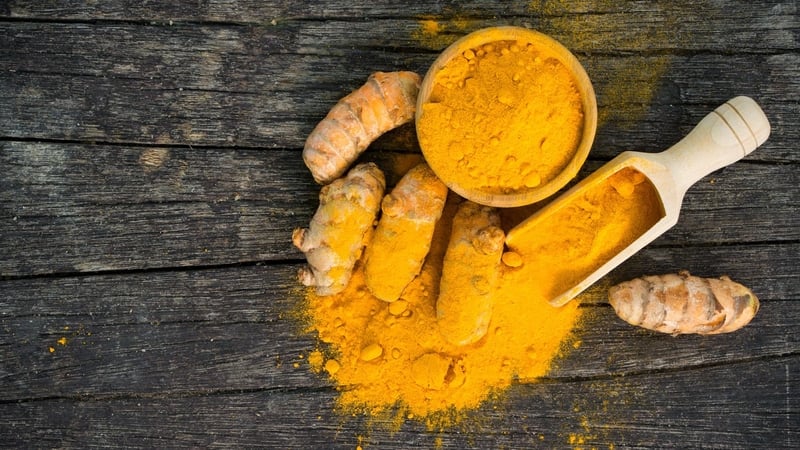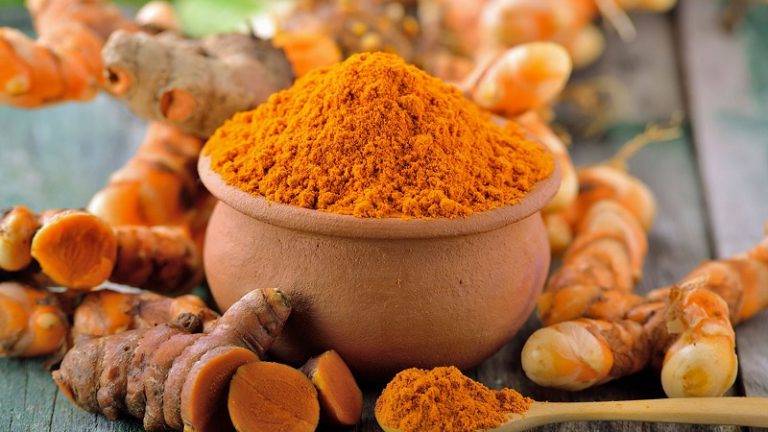
The Ultimate Guide to Turmeric for Better Digestion
The Ultimate Guide to Using Turmeric for Better Digestion dives into the fascinating world of turmeric and its potential to improve digestive health. From ancient remedies to modern research, we’ll explore how this vibrant spice can support your gut health. This guide will uncover the science behind turmeric’s digestive benefits, explore specific applications for various digestive issues, and provide practical tips on incorporating it into your daily life safely and effectively.
This comprehensive guide covers everything from the historical use of turmeric in relation to digestion to the potential benefits and risks of consuming it. We’ll also delve into different preparation methods, dosage recommendations, and how to integrate turmeric into a balanced diet for optimal results. Whether you’re experiencing bloating, gas, or other digestive concerns, this guide will provide you with the knowledge and tools to navigate the world of turmeric and better digestion.
Introduction to Turmeric and Digestion: The Ultimate Guide To Using Turmeric For Better Digestion
Turmeric, a vibrant spice derived from the turmeric plant, has a rich history of use in traditional medicine, particularly in South Asian cultures. For centuries, it has been employed to support digestive well-being. This deep-rooted tradition suggests a potential link between turmeric and improved digestive function. This guide will explore the science behind this connection, examining the active compounds in turmeric and their potential mechanisms of action on digestion.Turmeric’s potential benefits for digestion stem from its bioactive compounds, primarily curcuminoids.
These compounds, particularly curcumin, possess antioxidant and anti-inflammatory properties. These properties may play a significant role in supporting digestive health, by potentially reducing inflammation in the gut, promoting healthy gut bacteria, and enhancing digestive enzyme activity. This guide will provide a comprehensive understanding of how turmeric might support digestive health, including potential benefits, risks, and considerations for use.
Turmeric’s Historical Use in Relation to Digestion
Turmeric has been a staple in Ayurvedic medicine for thousands of years. Traditional practices often incorporate turmeric in various formulations for digestive issues, such as indigestion, bloating, and diarrhea. These historical uses suggest a long-held belief in turmeric’s potential to support healthy digestion. However, it’s crucial to differentiate between historical anecdotal evidence and modern scientific findings.
Active Compounds in Turmeric Relevant to Digestion
The primary active compounds in turmeric are curcuminoids, a group of polyphenols. Curcumin is the most well-studied curcuminoid, and it’s known for its potent antioxidant and anti-inflammatory properties. These properties are thought to contribute to its potential benefits for digestive health. Other curcuminoids, such as demethoxycurcumin and bisdemethoxycurcumin, also contribute to turmeric’s overall effects, though curcumin receives the most research attention.
Potential Mechanisms of Turmeric’s Effect on Digestion
Turmeric’s potential to improve digestive function may arise from several mechanisms:
- Anti-inflammatory effects: Curcumin may reduce inflammation in the gut, which can be a contributing factor to digestive issues like irritable bowel syndrome (IBS) and inflammatory bowel disease (IBD). Reduced inflammation may translate to improved digestive comfort and function.
- Improved gut motility: Some studies suggest that curcumin might stimulate digestive motility, promoting the smooth movement of food through the gastrointestinal tract, thus reducing issues like constipation. However, more research is needed to fully understand this effect.
- Enhanced enzyme activity: Curcuminoids might influence the activity of digestive enzymes, potentially contributing to better nutrient absorption. However, more research is needed to validate this hypothesis.
- Support for healthy gut bacteria: The impact of curcumin on the gut microbiome is a developing area of research. Some preliminary findings suggest curcumin may support the growth of beneficial gut bacteria and help maintain a healthy gut balance.
Turmeric for Digestion: Benefits, Risks, Dosage, and Interactions
This table Artikels key aspects of using turmeric for digestive health:
| Benefits | Risks | Dosage | Interactions |
|---|---|---|---|
| Potential reduction in inflammation | Possible allergic reactions in sensitive individuals. | Generally, 500-1000 mg of curcuminoids per day, though individual needs may vary. Consult a healthcare professional for personalized guidance. | May interact with blood-thinning medications. Avoid use during pregnancy or breastfeeding unless advised by a healthcare professional. |
| Potential improvement in digestive motility | Rare cases of gastrointestinal upset, such as nausea or diarrhea, with high doses. | Start with a lower dose and gradually increase as tolerated. Follow the directions on the product label, and consult a healthcare professional if unsure. | May interact with certain medications, including some types of antibiotics, anti-inflammatory drugs, and others. |
| Possible enhancement of nutrient absorption | May cause mild stomach upset in some individuals. | Dosage should be tailored to individual needs and responses. It is best to start with a low dose and gradually increase. | Important to consult with a doctor or pharmacist before taking turmeric supplements, especially if you are on other medications. |
Turmeric for Specific Digestive Issues

Source: rasset.ie
Turmeric, with its vibrant golden hue and potent compounds, has shown promise in supporting digestive health. Beyond its general anti-inflammatory properties, turmeric may offer specific benefits for various digestive issues. Understanding these potential applications can help you make informed choices about incorporating turmeric into your diet.Turmeric’s active compound, curcumin, is believed to play a crucial role in its digestive support.
Curcumin possesses anti-inflammatory and antioxidant properties, which can help soothe the digestive tract and promote better function. However, it’s important to remember that turmeric is not a cure-all and should be used as part of a comprehensive approach to digestive health, in consultation with a healthcare professional.
Bloating and Gas, The Ultimate Guide to Using Turmeric for Better Digestion
Turmeric’s anti-inflammatory properties might help reduce the inflammation that often contributes to bloating and gas. Some studies suggest that curcumin can help regulate the gut microbiome, potentially improving gas production. Additionally, turmeric’s ability to promote healthy digestion might lead to less discomfort associated with bloating.
Inflammatory Bowel Diseases (IBD)
Research suggests that turmeric’s anti-inflammatory properties may be beneficial for individuals with IBD. By reducing inflammation in the digestive tract, curcumin might help manage symptoms like abdominal pain, cramping, and diarrhea. While more research is needed, preliminary studies indicate a potential role for turmeric in improving quality of life for those with IBD.
Irritable Bowel Syndrome (IBS)
Turmeric may help manage IBS symptoms by reducing inflammation and promoting gut motility. The ability of curcumin to modulate the gut microbiome might play a role in alleviating IBS symptoms like abdominal pain, bloating, and altered bowel habits. However, individual responses to turmeric can vary significantly, and its efficacy for IBS is still under investigation.
Acid Reflux or Heartburn
Turmeric’s anti-inflammatory and antioxidant properties might help manage acid reflux or heartburn symptoms. Some believe curcumin can reduce stomach acid production and promote better esophageal function. While anecdotal evidence exists, more rigorous studies are necessary to definitively establish turmeric’s role in managing these conditions.
Incorporating Turmeric into Your Diet
Turmeric can be incorporated into various dishes to address specific digestive issues. Adding turmeric powder to smoothies, soups, or curries can provide a delicious and potentially beneficial way to consume turmeric. It’s crucial to consult with a doctor or registered dietitian to determine the best way to incorporate turmeric into your diet, considering any existing health conditions.
Recommended Turmeric Intake for Different Digestive Issues
| Digestive Issue | Potential Turmeric Benefits | Recommended Dosage (approximate) | Potential Side Effects |
|---|---|---|---|
| Bloating and Gas | Reduce inflammation, regulate gut microbiome | 1-3 grams of curcumin per day | Mild digestive upset, nausea in some individuals |
| IBD | Reduce inflammation, manage symptoms | 1-3 grams of curcumin per day, or as directed by a doctor | Possible liver or gallbladder issues in those with pre-existing conditions; consult a physician. |
| IBS | Reduce inflammation, promote gut motility | 1-3 grams of curcumin per day, or as directed by a doctor | Mild digestive upset, allergic reactions (rare). |
| Acid Reflux/Heartburn | Reduce stomach acid production | 1-3 grams of curcumin per day, or as directed by a doctor | Mild digestive upset, potential interactions with certain medications. |
Preparation and Consumption Methods
Turmeric’s potent anti-inflammatory and digestive-supporting properties are best unlocked through thoughtful preparation and consumption. This section delves into various methods, from simple teas to complex curries, highlighting how to maximize turmeric’s benefits and minimize potential drawbacks. Understanding the optimal dosage and incorporating turmeric into different meal types is crucial for achieving the desired digestive support.Preparing turmeric for consumption involves more than just adding it to food.
So, I’ve been diving deep into the amazing world of turmeric for better digestion, and I’m finding it incredibly helpful. But, a recent article about the UK’s Robert Walters abandoning profit expectations in the current tough hiring market UK’s Robert Walters abandons profit view in tough hiring market got me thinking. Perhaps there’s a connection between gut health and the overall economic climate.
Regardless, I’m definitely sticking with my turmeric routine, and I’m eager to see how it impacts my digestion. This Ultimate Guide to Using Turmeric for Better Digestion is a great starting point.
The method of preparation significantly impacts its bioavailability – how effectively your body absorbs and utilizes the active compound curcumin. This, in turn, influences its potential to soothe digestive issues.
Turmeric Tea
Turmeric tea is a simple and effective way to enjoy the benefits of turmeric. It’s a soothing beverage that can help ease inflammation and promote better digestion. To prepare, combine a teaspoon of turmeric powder with a cup of hot water. Add a pinch of black pepper (or a few drops of lemon juice) to enhance curcumin absorption.
You can also add honey or ginger for added flavor and digestive support.
Turmeric Curries
Curries are a delicious and versatile way to incorporate turmeric into your diet. Many traditional curries utilize turmeric as a key ingredient, adding a vibrant yellow hue and a warm, earthy flavor to dishes. The combination of spices in curries can further enhance digestion and overall well-being. When making curries, be sure to use a moderate amount of turmeric, as excessive amounts can have a strong flavor.
Turmeric Supplements
Turmeric supplements provide a convenient way to consume concentrated amounts of turmeric. They are available in various forms, such as capsules, powders, and extracts. The bioavailability of curcumin in supplements can vary greatly depending on the specific formulation. Look for supplements that contain black pepper extract (piperine) to boost curcumin absorption.
Healthy Recipes Incorporating Turmeric
Incorporating turmeric into your diet doesn’t require drastic changes. Here are a few examples of dishes that can easily include turmeric:
- Turmeric Chicken Curry: Marinate chicken in turmeric, ginger, and garlic before cooking it in a flavorful curry sauce. This recipe provides a rich source of protein and turmeric’s digestive benefits.
- Turmeric Roasted Vegetables: Toss your favorite vegetables (broccoli, carrots, bell peppers) with turmeric, olive oil, and salt/pepper before roasting. This adds a vibrant flavor and healthy nutrients to your meal.
- Turmeric Smoothie: Blend turmeric powder, fruits (banana, mango), spinach, and milk for a quick and healthy turmeric smoothie. This is an easy way to add turmeric to your daily intake.
Ideal Turmeric Dosage
The ideal dosage of turmeric for digestive health varies based on the individual and the form of turmeric consumed. For most people, a daily dose of 500-1000 mg of curcumin, taken with black pepper, is considered a safe and potentially effective dosage.
Turmeric Consumption and Absorption
To optimize turmeric absorption, it’s recommended to consume it with a source of healthy fats, such as coconut oil or olive oil. This can help the curcumin dissolve and be absorbed more effectively.
Preparation Methods Table
| Preparation Method | Ingredients | Benefits | Potential Drawbacks |
|---|---|---|---|
| Turmeric Tea | Turmeric powder, hot water, black pepper (optional), honey (optional), ginger (optional) | Soothing, anti-inflammatory, aids digestion | May not be as potent as other forms, taste may not be to everyone’s liking |
| Turmeric Curry | Turmeric powder, various spices, vegetables, protein source (chicken, lentils, tofu) | Delicious, flavorful, rich in nutrients, promotes digestion | Potential for high sodium content if not made carefully, may contain allergens |
| Turmeric Supplements | Curcumin-rich extract capsules or powder | Convenient, concentrated dosage, readily available | Bioavailability varies, may cause stomach upset in some individuals |
Potential Benefits and Risks

Source: healthymenstore.com
Turmeric, with its vibrant golden hue, has captured the attention of health enthusiasts worldwide. Beyond its culinary appeal, turmeric’s active compound, curcumin, shows promise in supporting digestive health. However, like any natural remedy, turmeric comes with potential benefits and risks. Understanding these nuances is crucial for incorporating it safely into your wellness routine.This section delves into the potential benefits of turmeric for digestion, explores possible risks and side effects, emphasizes the importance of professional consultation, and details potential interactions with other medications.
We’ll equip you with the knowledge to make informed decisions about incorporating turmeric into your digestive health journey.
Potential Benefits for Digestion
Turmeric’s potential benefits for digestion stem primarily from curcumin’s anti-inflammatory and antioxidant properties. These properties can help soothe the digestive tract, potentially reducing inflammation associated with various digestive conditions. Some studies suggest curcumin may enhance the production of digestive enzymes, aiding in the breakdown and absorption of nutrients. For example, individuals experiencing mild indigestion or occasional bloating might find turmeric helpful in managing these symptoms.
My recent deep dive into The Ultimate Guide to Using Turmeric for Better Digestion has been incredibly insightful. While exploring the benefits of turmeric, I stumbled upon some fascinating news about Bitcoin, specifically, how the US SEC’s recent policy win for crypto, as detailed in this article Bitcoin gains as US SEC gives crypto its first policy win , might actually influence future health trends.
This news got me thinking about the potential for turmeric to become more widely adopted as a natural remedy, perhaps even in a way that’s similar to the rapid adoption of certain cryptocurrencies. Hopefully, this holistic approach to well-being will continue to flourish!
However, it’s essential to remember that these are potential benefits, and individual experiences may vary.
Potential Risks and Side Effects
While turmeric is generally considered safe, potential risks and side effects exist. Some individuals may experience mild gastrointestinal issues like nausea, heartburn, or diarrhea, particularly with high doses. Rarely, more severe side effects like liver problems or skin reactions can occur. It’s crucial to note that individual sensitivities vary. Those with pre-existing liver conditions or taking medications that affect the liver should exercise caution and consult a healthcare professional before using turmeric.
Importance of Professional Consultation
Given the potential interactions with other medications and the individual variability in response to turmeric, consulting a healthcare professional is paramount, especially for those with pre-existing health conditions. This is particularly true for individuals taking blood thinners, anticoagulants, or those with liver or gallbladder issues. A healthcare professional can assess your individual health status and determine if turmeric is appropriate for you, and at what dosage.
I’ve been diving deep into the amazing world of turmeric lately, and my latest post, “The Ultimate Guide to Using Turmeric for Better Digestion,” is all about harnessing its power for gut health. While I’m focusing on natural remedies, it’s worth considering the parallel risks from unregulated tanker fleets, which are a major concern, as highlighted in this recent article about the risks from unregulated tanker fleet rising, UN shipping chief says Risks from unregulated tanker fleet rising, UN shipping chief says.
Ultimately, whether it’s our bodies or the environment, responsible practices are key, and turmeric’s benefits are definitely worth exploring further.
This proactive approach ensures safe and effective use of turmeric.
Interactions with Other Medications
Turmeric may interact with certain medications, including blood thinners, diabetes medications, and some pain relievers. These interactions can potentially alter the effectiveness or safety of the medications. For instance, combining turmeric with blood thinners might increase the risk of bleeding. A healthcare professional can assess potential drug interactions and recommend appropriate precautions. A physician can advise on safe consumption strategies for those taking multiple medications.
Dosage Recommendations and Precautions
| Benefit | Risk | Dosage Recommendation | Precautions |
|---|---|---|---|
| Potential reduction of digestive inflammation | Mild gastrointestinal upset (nausea, heartburn, diarrhea) | Start with a low dose (e.g., 500 mg of curcumin) and gradually increase as tolerated. | Consult a doctor before use, especially if you have liver conditions or take other medications. |
| Potential enhancement of digestive enzyme production | Rarely, severe liver problems or skin reactions. | Follow a healthcare professional’s guidance regarding dosage and duration of use. | Discontinue use if you experience any unusual symptoms. |
| May aid in managing mild digestive issues | Individual sensitivities vary. | Listen to your body and adjust dosage accordingly. | Consult with a healthcare professional before use, especially if pregnant or breastfeeding. |
Integrating Turmeric into a Healthy Diet
Turmeric, with its potent anti-inflammatory properties, can be a valuable addition to a balanced diet for promoting digestive well-being. However, simply adding turmeric to your diet isn’t enough for optimal results. Strategic integration into your daily meals and snacks is key to maximizing its benefits while maintaining a healthy overall diet.Proper incorporation of turmeric considers the best ways to prepare and consume it, ensuring optimal bioavailability and avoiding potential downsides.
This section will provide actionable steps and practical examples to seamlessly integrate turmeric into your everyday meals, maximizing its potential benefits for digestive health.
Turmeric-Infused Meal Examples
Strategic integration of turmeric into meals can significantly enhance its impact on digestion. Pairing turmeric with other nutrient-rich foods amplifies its effects, providing a comprehensive approach to digestive health. This approach also ensures a varied and balanced intake of essential nutrients.
| Meal Type | Ingredients | Preparation Method | Nutritional Value |
|---|---|---|---|
| Turmeric-Ginger Chicken Curry | Chicken breast, turmeric powder, ginger, garlic, coconut milk, vegetables (broccoli, carrots, peas), brown rice | Sauté chicken with ginger and garlic. Add turmeric, vegetables, and coconut milk. Simmer until chicken is cooked through. Serve over brown rice. | High in protein, fiber, and antioxidants. Provides sustained energy and promotes healthy digestion. |
| Turmeric Scrambled Eggs | Eggs, turmeric powder, spinach, whole-wheat toast | Whisk eggs with turmeric. Sauté spinach. Add turmeric-infused eggs to spinach and serve with whole-wheat toast. | Excellent source of protein and vitamins. Promotes satiety and supports overall digestive function. |
| Turmeric-Spiced Sweet Potato Fries | Sweet potatoes, turmeric powder, cumin, paprika, olive oil | Cut sweet potatoes into fries. Toss with turmeric, cumin, paprika, and olive oil. Bake or air fry until crispy. | Good source of complex carbohydrates, vitamins, and antioxidants. Promotes healthy gut bacteria and aids digestion. |
| Turmeric Latte | Turmeric powder, milk (dairy or non-dairy), ginger, cinnamon, honey (optional) | Warm milk with turmeric, ginger, and cinnamon. Sweeten with honey, if desired. | Provides warmth and comfort. Turmeric’s anti-inflammatory properties can ease digestive discomfort. |
Combining Turmeric with Other Foods
Maximizing turmeric’s digestive benefits involves pairing it with foods that enhance its absorption. Black pepper, for example, significantly improves turmeric’s bioavailability. This means your body absorbs more of the beneficial compounds in turmeric.
Black pepper contains piperine, a compound that increases turmeric’s absorption rate by up to 2000%.
Other beneficial pairings include foods rich in vitamin C, such as citrus fruits and berries, as well as healthy fats like those found in avocados or nuts. These pairings help your body process turmeric more effectively, leading to better digestive health.
Maintaining a Healthy Digestive System
Beyond turmeric supplementation, maintaining a healthy digestive system requires a holistic approach. Prioritizing a balanced diet rich in fiber, staying hydrated, and managing stress levels are all crucial. Regular exercise, sufficient sleep, and mindful eating habits also play a critical role. Probiotics and prebiotics, found in fermented foods like yogurt and kimchi, can further support a healthy gut microbiome, which is essential for optimal digestion.
Wrap-Up
In conclusion, turmeric offers a promising avenue for supporting digestive health. While more research is always beneficial, the existing evidence, combined with centuries of traditional use, suggests that incorporating turmeric into a healthy lifestyle can be a valuable tool. Remember, this guide provides information for educational purposes only, and consulting a healthcare professional is crucial before making any significant dietary changes, especially if you have underlying health conditions.
Take charge of your digestive well-being with informed choices and a healthy dose of turmeric.
Q&A
Does turmeric interact with other medications?
Yes, turmeric can interact with certain medications, particularly blood thinners and those that affect blood sugar levels. It’s essential to discuss turmeric use with your doctor if you’re taking any medications.
What’s the ideal dosage of turmeric for digestive health?
The ideal dosage of turmeric varies depending on the form (e.g., powder, capsules) and individual needs. A general guideline is 1-3 grams per day, but it’s crucial to consult a healthcare professional for personalized recommendations.
Can turmeric help with irritable bowel syndrome (IBS)?
Some studies suggest turmeric may help manage IBS symptoms by reducing inflammation. However, more research is needed to confirm its effectiveness for everyone with IBS. Consult your doctor before using turmeric to manage IBS symptoms.
What are some potential side effects of turmeric?
Potential side effects of turmeric can include nausea, diarrhea, and skin reactions. While generally safe, some individuals may experience these side effects, especially with higher doses. Consult a healthcare professional before taking large doses of turmeric.






